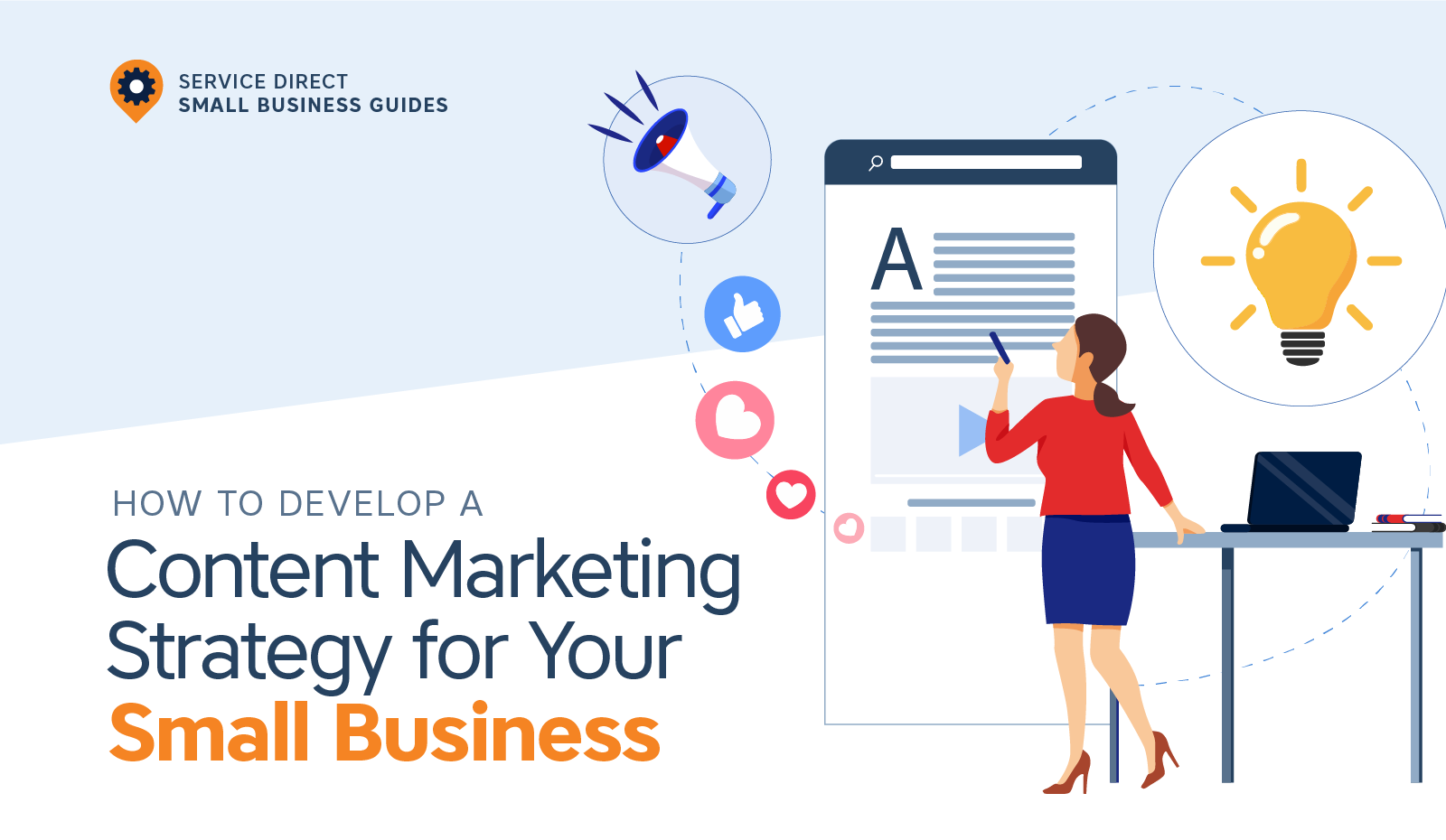Ask The Experts: Developing a Content Marketing Strategy for Your Small Business
If you’ve come across this article, you’re probably familiar with the term content marketing. In fact, you probably do some content marketing already. If you’ve ever written a blog post, published a video on YouTube, or posted to Facebook or any other social media network, then congrats, you’re doing content marketing!
But do you have an actual plan?
In a recent study we performed, only 61% of small businesses that reported doing content marketing indicated they have an actual documented plan.
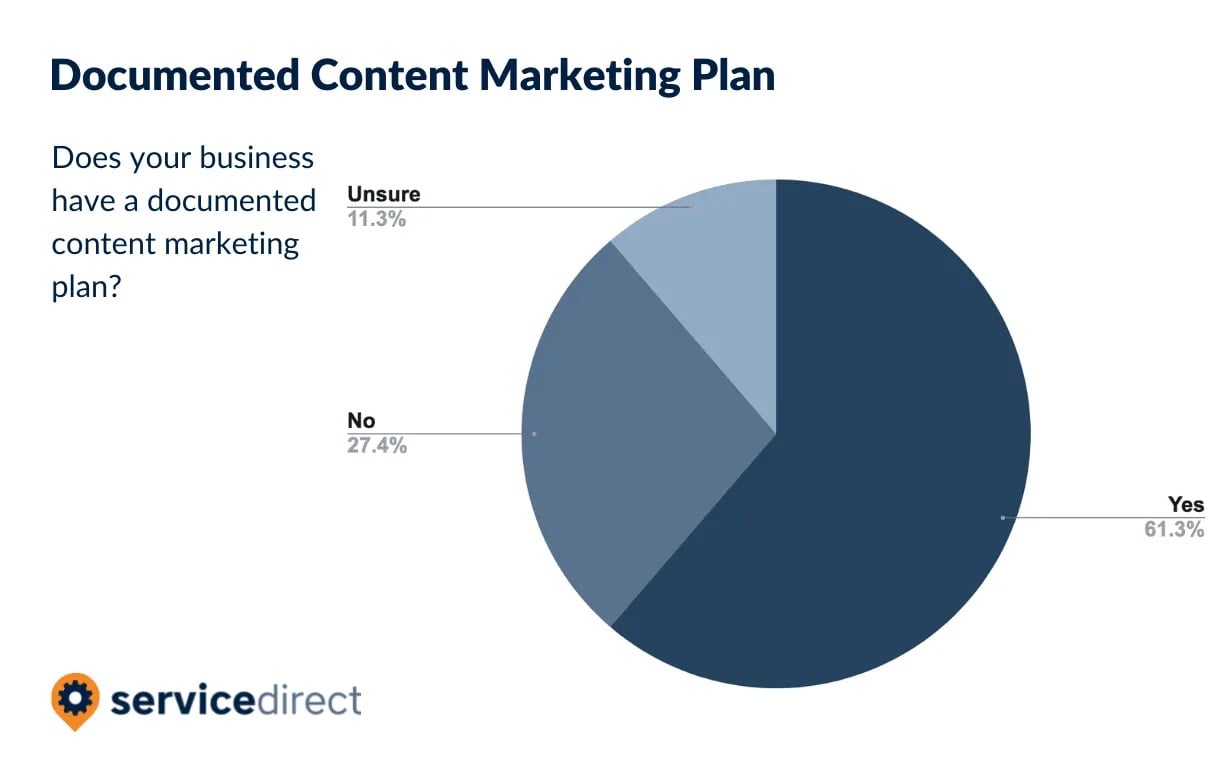
Why does that matter? Like anything in life or business, having a plan helps you stay accountable to reaching your goals. Absent an actual plan, it’s easy to lose focus and lose sight of why you are doing what you are doing.
In fact, in our survey, 57% of those small businesses that had a documented content marketing plan agreed that their business saw success with their content marketing efforts, while only 21% of those without a documented plan agreed.
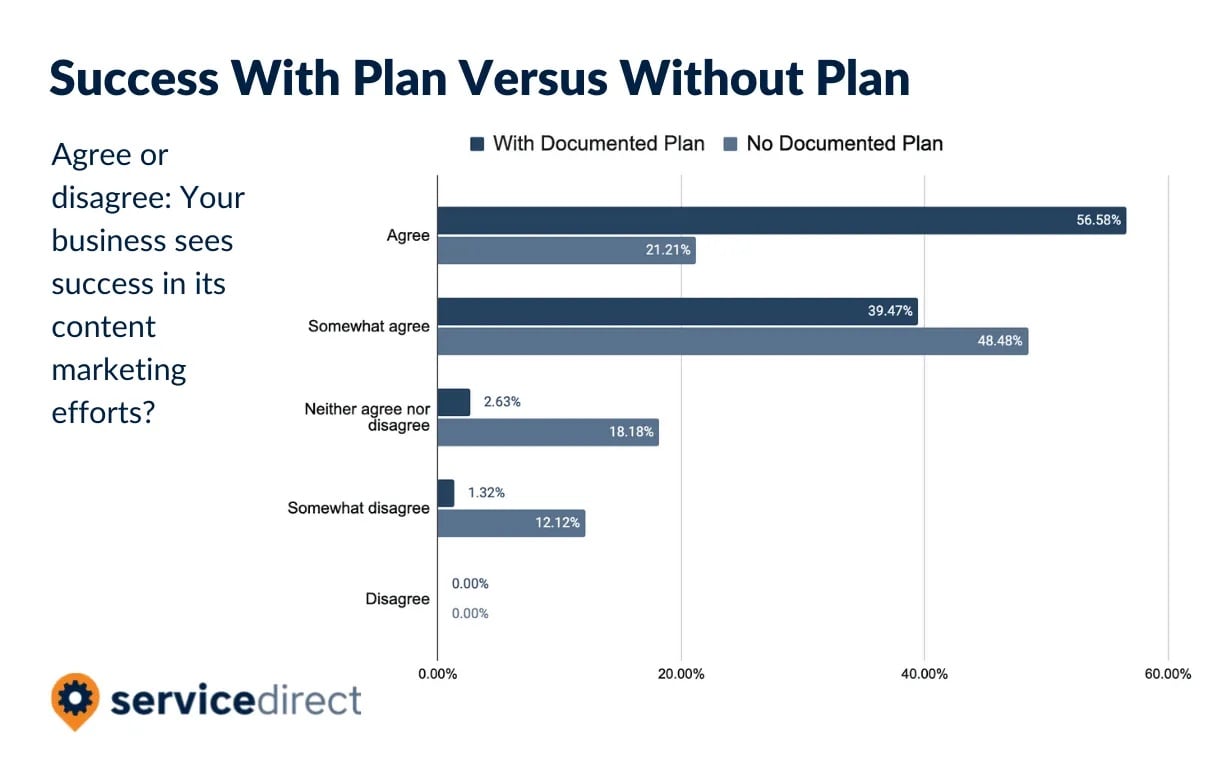
It’s clear that if you want to set up your content marketing efforts to see success, having a plan is crucial.
So in an effort to help you learn from others that have gone through the process of building and executing a content marketing plan, we asked some experts to share their insights…
Build a Content Calendar
When creating a content marketing plan, small businesses should build a content calendar. It helps in two ways. Firstly, they can keep you well-organized. Scheduling content permits consistency, coherently varies in topics and formats, and saves precious time. Secondly, small businesses can build trust and familiarity with their audience by delivering regular content. The audience will start to be comfortable with the brand and its identity.
Natalia Brzezinska, PhotoAiD
Resource: Sample Editorial Content Calendar Template
Take Steps to Avoid Content Dry Spells
A big issue around content marketing for small businesses is running out of ideas. Every marketer has run into this problem, but learning how to overcome it so you have a consistent content calendar is vital for online success. Before you start creating content, identify what kinds of content you are able to create. Which content mediums does your team have the time and skills to produce: blogs, eBooks, videos, infographics, webinars, etc? It's also worth noting how long each piece of content takes to produce as well as the amount of work required to syndicate the content. Look for shortcuts with the latter, like using a tool to schedule Facebook posts to more easily share content with your audiences.
Think of the content process as a funnel to get to each piece of content. At the top you have themes. Each content theme should last one to three months. This could be different services, industries, product groups, or seasons. Next, think about objectives - are you building awareness, generating leads, building followers through engagement, etc. The next thing is to filter down by keyword - what is the specific topic? After this, pick a medium, then finally choose a title!
Dan Simpson, The Remote Marketer
Create Long-Term Goals Based on Your Mission
First and foremost, you should clearly define your long-term, overarching goals based on your mission statement. Next, you will want to break your larger goals down into attainable, measurable milestones so that you can track and make sure you are accomplishing what you set out to do. A small business's marketing plan is non negotiable. It should include social media, a website, and other mediums such as print material and referral programs that seem applicable to helping you meet your goals. Your marketing channels may vary based on your industry and goals. Overall, your first step should be to clearly define your long-term goals and then find ways to break them up into attainable and measurable goals to stay on track and pivot if necessary.
Ann McFerran, Glamnetic
Worth noting: In our recent survey 45% of small businesses reported generating new customers is the primary goal of their content marketing efforts. Interestingly, the larger the company was, the lesser emphasis that was placed on generating new customers as opposed to objectives like improving existing customer loyalty and increasing brand awareness.
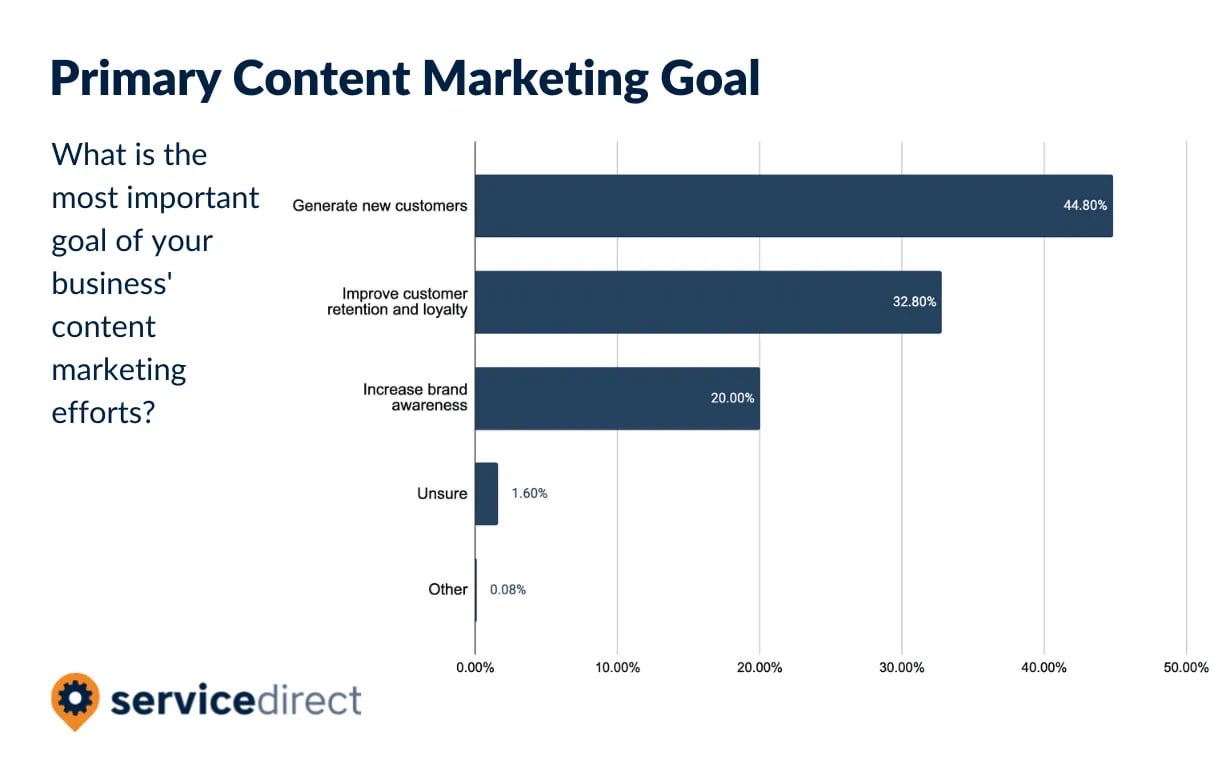
Encourage Team Collaboration
Some of the best content marketing plans are borne out of collaboration. If you are in charge of content and want to develop your ideas independently, you may limit the possibilities by missing out on some valuable contributions from others. So, the more marketing team members are involved, the better because such a wide variety of perspectives can lead to many excellent ideas that you may not have even considered. Furthermore, multiple team members could combine their ideas.
Miles Beckett, Flossy
Make Sure You Have Your Metrics in Place
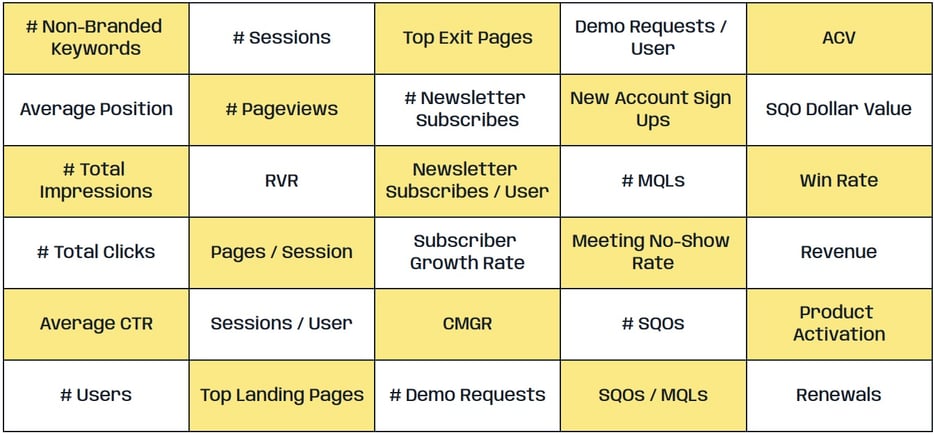
Many businesses set goals and craft strategies when setting up their content marketing plan but then fail to set up the proper metrics to measure performance. Outward appearances or superficial examination of your sales will only give you a partial picture of how a content marketing plan is working, and if read incorrectly, can often be misleading. Identifying performance indicators such as referral rates, unique page views, and the number of downloads, will give you a fuller picture of how your content marketing plan is working and where it might need adjustments. Simply setting forth a marketing plan without the metrics to measure performance will basically be a strategy implemented in a vacuum, but having those performance indicators in place, will allow you to know when you are succeeding and when you are missing the mark.
Adelle Archer, Eterneva
Know Your Audience to Help Your Content Marketing Plan
Identify your target audience to create an effective content marketing plan. This is the first step and the most crucial factor. Your planning, content, and messaging will be all over the place if you don’t know who you’re talking to. Knowing your target audience focuses your planning and content creation efforts, getting the attention of your desired market. Don’t think that you’re limiting your marketing by focusing on a specific demographic. Having too broad an audience will also not be productive. As the digital marketing guru Marie Forleo says, “If you’re talking to everybody, you’re talking to nobody.”
Ruth Novales, Fortis Medical Billing Professionals
Quick Tip: When building a persona around your ideal customer, complete the following:
Name. It might sound silly, but give them an actual name. It helps you create a mental image in your mind of what they might look like.
Age. What is their age range?
Gender. Are you mostly targeting a specific sex?
Job title. For B2B companies especially, you’ll want to list out the various job titles your ideal customer might have.
Online channels. Where do they spend the majority of their time online? You probably inherently already know the answer here, but you may need to do some homework on each online channel to get a better sense for their user demographics.
Pain points. People buy from you because they have specific pain points they believe you can solve. List out exactly what those are so that you can complete the final portion of your audience persona analysis below…
Solutions to their problems. Once you understand their pain points, you’ll want to lay out in very brief/compelling terms exactly how your company solves their pain points.
Focus Your Content on Your Ideology
Small businesses generally have a more prominent work ethos and culture. This is often very visible to the public eye. For example, if it's a beauty brand which talks about clean beauty, you will be under constant radar about whether your products match your promises. You do not have the liberty of big brands to hide ingredients behind celebrity faces and SD campaigns. Your content should revolve around such ideologies. As a small business, you don't have to sell a product, you have to sell an ideology, a promise. Circle your content around this promise. This can be something like environment friendly, natural, rich in culture, etc.
Agnes Zabawa, Insurancenavy
Get Competitor Market Insights First
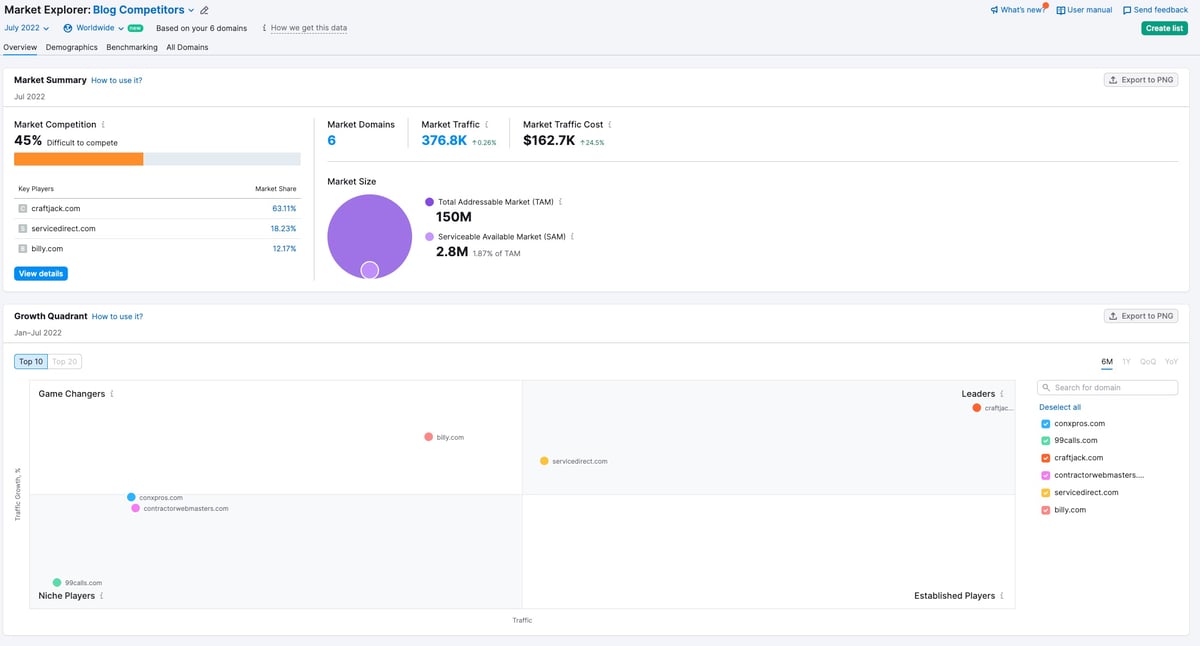
First track your competitors using competitor market insight software as early as possible. The analytics are already out there before you even pick up a finger, so learn from your competitors’ mistakes and successes as you strategize your own content marketing plan. The earlier you do this market research the better, as you might find data that sets you on a different path than you expected. Perhaps the data reveals that using humor doesn’t work with customers in this space, or maybe you find that you’re adhering too close to a competitor’s piece of the pie and risk diluting your brand. Learning from others’ marketing efforts frees you from emotion and helps you make informed decisions that help you carve a place for your business in the marketplace.
Oliver Zak, Mad Rabbit
Hire a Professional Where Needed
Small businesses usually have limited funds. This might lead some small business owners to take on a bit more DIY in their content marketing strategy than they actually should. This can be a big and costly mistake. Before making any big choices for your campaign, it may help to audit your talent. Know what you're capable of handling on your own as far as your marketing goes, and be honest about what elements are best left to professional hands. For example, if you’re in a niche that requires a mastery of technical content but you don’t have a solid writer on your team, it may make sense to call in professional writers. This may not be the most inexpensive path to take, but it will be far less expensive than having a lackluster content marketing campaign that you'll need to do again in the near future. Get your campaign done right the first time rather than paying the price for being too thrifty.
Boye Fajinmi, TheFutureParty
Start With What You Can Do
When small businesses are looking to start a content marketing plan, it’s best to build from what you’re capable of. It’s easy to want to build a robust strategy that involves posting new content every week, but if you’re a busy one-person shop, you might not be capable of doing so. Starting with what you can do can help you really build a sustainable strategy that can grow with you.
Your content marketing strategy can begin with optimizing your current site for search engine algorithms and grow to include regularly updated content and blog posts. You can also start with outsourcing blog writing so you can save your effort for more business-critical tasks. Outsourcing these specialized skills can be more cost effective and help you build a site that works for you. Starting with your limitations lets you prioritize your business needs and look to your goals, so you can build a reasonable plan that ensures that you improve your business’s SEO so you can get the results you want.
Kyle Risley, Lift Vault
Choose a Channel to Focus on
Content marketing is an effective way to expand your brand awareness and reach. But with a wide range of options, it can be overwhelming to keep up with the need to put out content regularly. As a small business with limited resources, you can start with your content marketing by choosing one channel to focus on first. As you get the hang of things, you can expand in other channels and create more content that will resonate with your audience. When choosing a platform, always think about your audience. Where do they hang out? Where are they most active? It's also crucial to consider what kind of content they consume the most.
Marina Vaamonde, HouseCashin
Sacrifice a Little Quality for Consistency
Small businesses should remember that the point of a content marketing strategy is not to always get it right, but to continually iterate and improve upon their approach. Small businesses typically have a limited budget to put toward their content marketing, which means they're more likely to take a methodical approach, trying to get everything perfect.
But this wastes valuable time, dragging out production time between content releases, while trends rocket past your strategy and consumers move on to the next thing. In the beginning, it's alright to sacrifice a little quality in order to establish consistency, and to make continual improvement the real goal.
Adam Bem, Victoria VR

